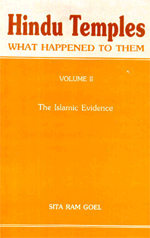|
 Introduction
Introduction
The Qurăn can, without an exaggeration, be called the Bible in Arabic so far as its dominant theme is concerned. That dominant theme is monotheism with all its implications, of which the most important is iconoclasm. Our judgement is confirmed by the way the pagan Arabs responded to the Qurăn.
The Allah of the Qurăn announced again and again that he was making his revelations available in the Arabic language so that the Arabs could have a scripture of their own.1 The response from the Arabs, however, was far from positive. Biographers of the prophet inform us that the more the pagan Arabs came to know the Qurăn the more hostile they became to it, till the man through whose mouth it was being conveyed left Mecca in total frustration. The only Arab audience which the Prophet could find was in Yathrib (Medina), the City of the Book.
Today the Qurăn is regarded, not by the Muslims alone, as the greatest classic ever composed in the Arabic language. But the people to whom the language belonged before it was usurped by Islam, took no such pride in the composition. On the contrary, they felt extremely annoyed that their ancient language was being misused for a very profane purpose by a person whom, as we shall see, they thought demented and possessed by evil spirits.
Author : Shri Sita Ram Goel
Foot Notes
1 Qurăn, 12.2; 20.113; 26.195; 41.3; 43.3.
|